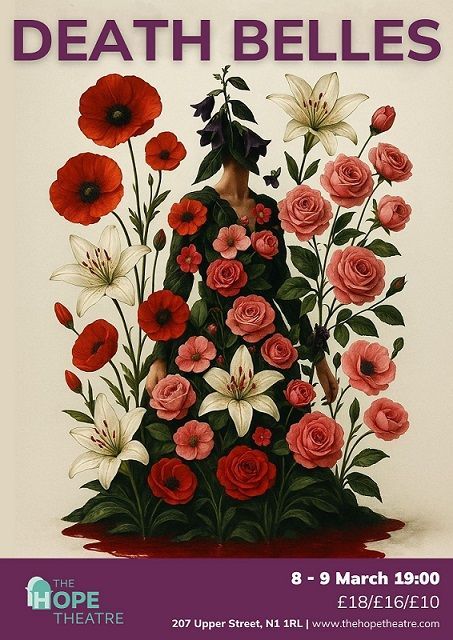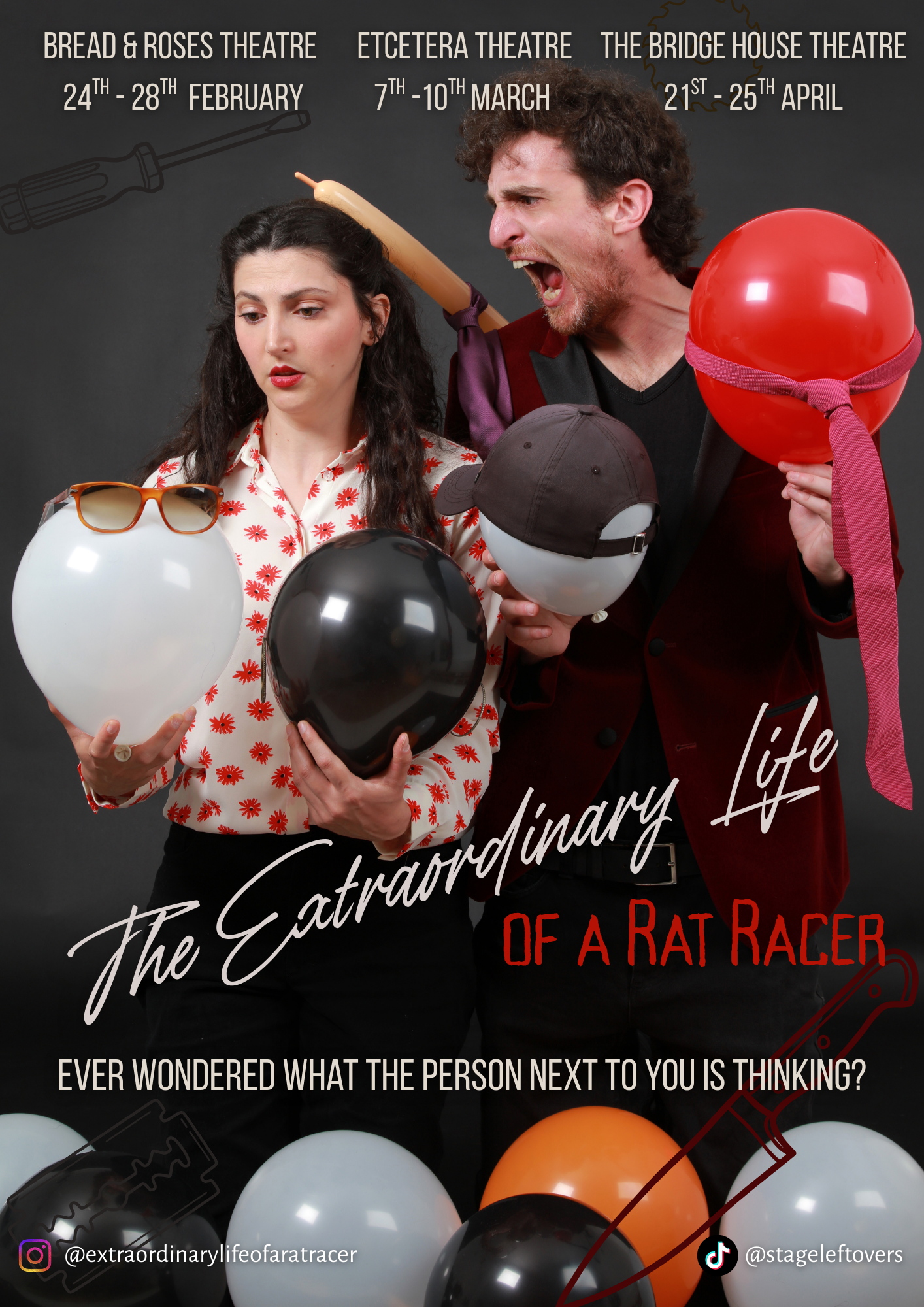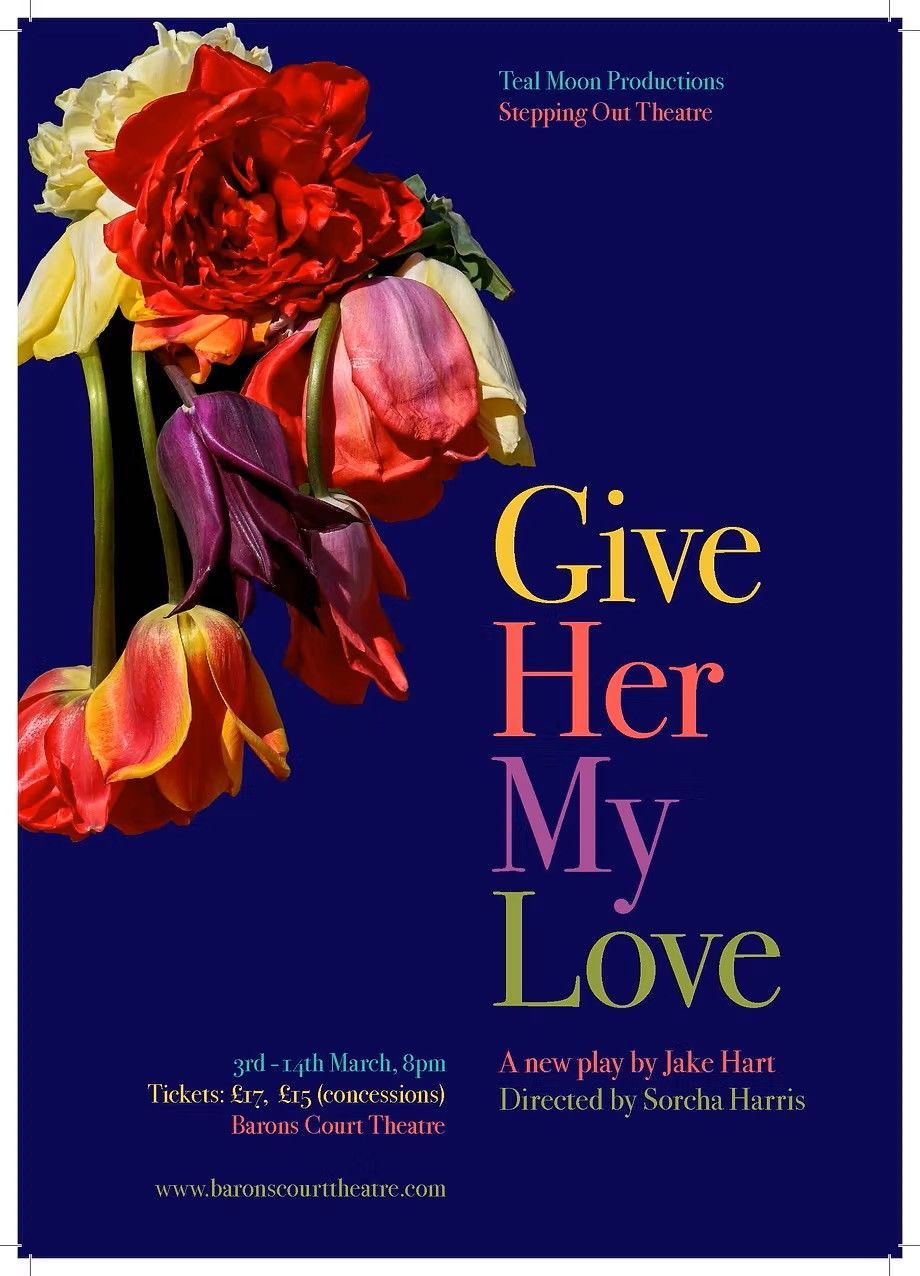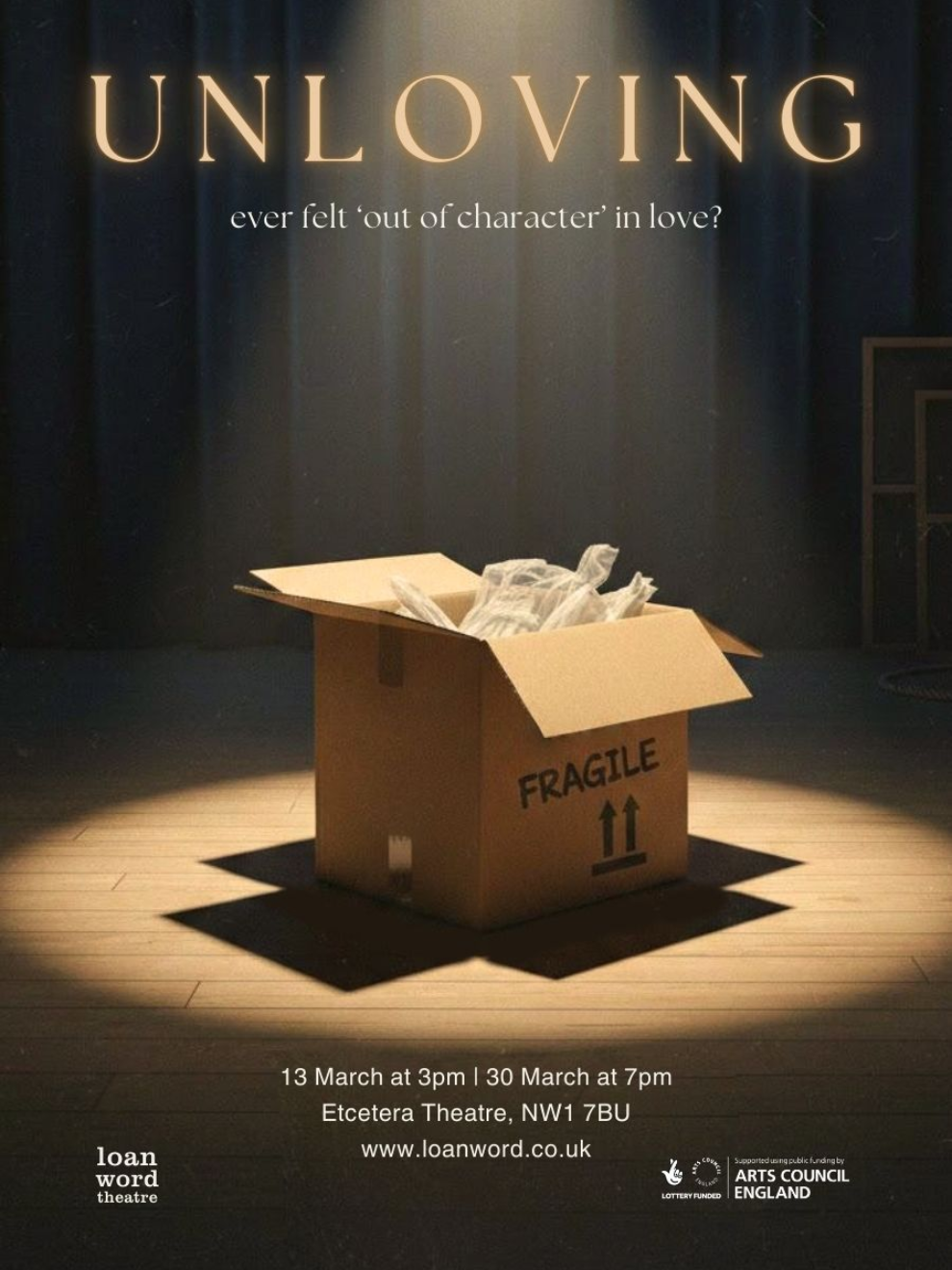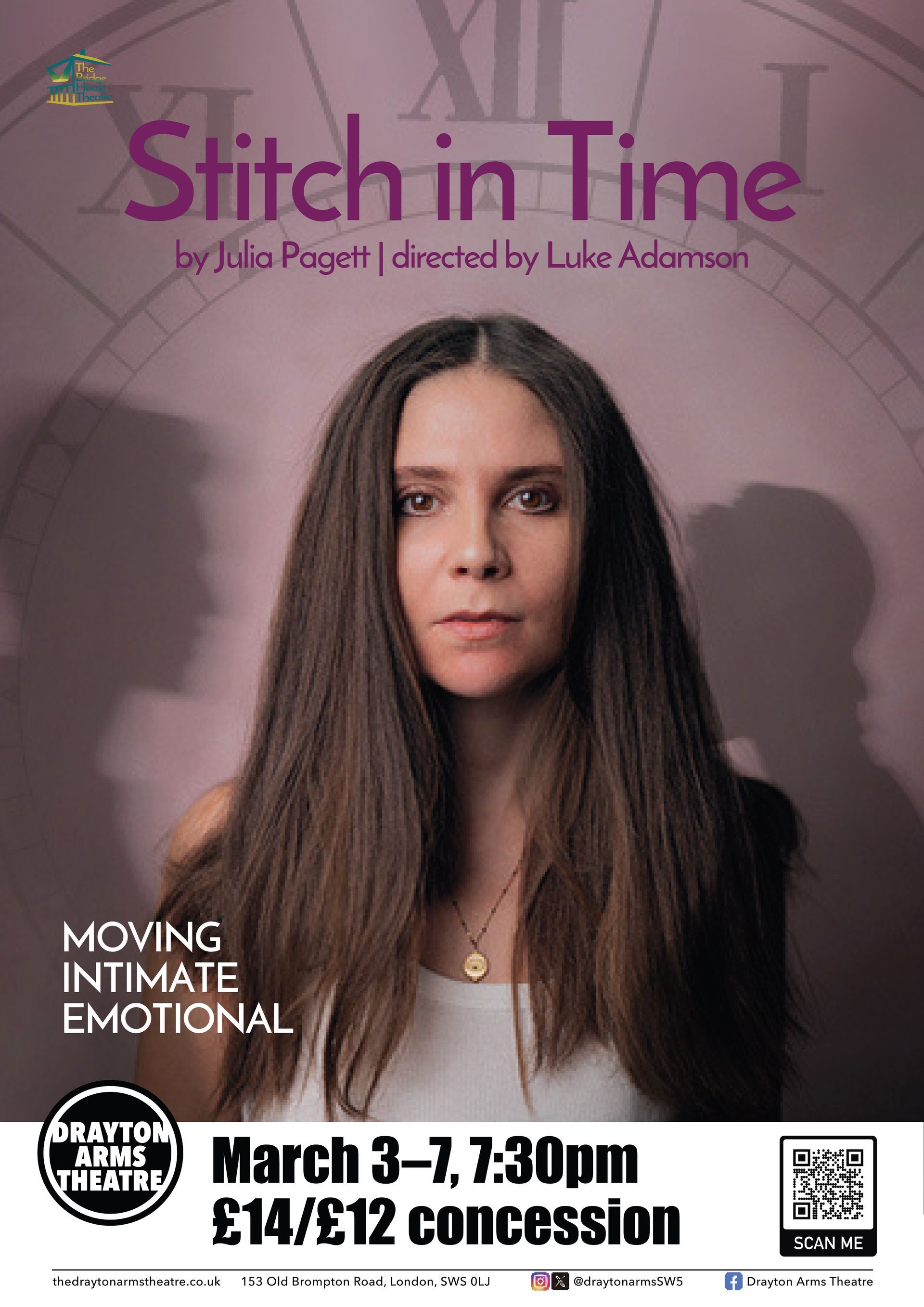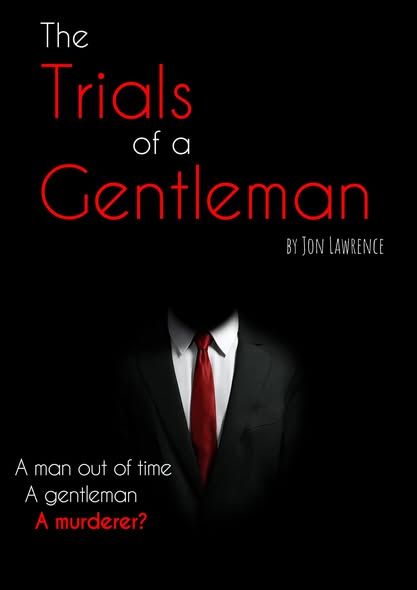REVIEW: THE DOUBLE ACT by Mark Jagasia at Arcola Theatre 23 Jan – 22 Feb 2025

‘Mark Jagasia has crammed comedy into every nook and cranny of the script’ ★★★ ½
The Double Act takes place in the dingy living room of a maisonette. In amidst the mouldering walls, ratty curtains, and bedraggled furniture hangs a bright, framed poster of Biddle & Bash, a comedy double act who were big in the ‘80s. It’s a light amongst the dark, a reminder of the better days of Clifford ‘Cliff’ Biddle – the half of the comedy act who has sunk through infamy, past obscurity, and landed in insanity. He’d say that his sorry tale began the day he got shot in the eye. Others would say it had more to do with his seventeen counts of indecent exposure. The other half of the duo, the bullish Billy Bash, has had a successful career. He’s currently on the tail end of a 60-day tour. His secret to success? Racist, sexist and homophobic jokes that get you in the bad books of the Guardian but keep you in the good graces of the general public. And here we find the play’s main preoccupation: the hidden costs of a comedy that punches down.
The play takes place over an afternoon when Billy and Cliff reunite after decades apart. Billy doesn’t want to be there. He’d like to leave Cliff firmly in the past, along with his first four wives. However, a confluence of events has led him inexorably to Cliff’s maisonette: Billy’s final show is just down the road and Gulliver, Cliff’s frolicsome lodger, has impressed on Billy the desperate importance of seeing Cliff, who is in bad health. Branding the place a ‘mausoleum,’ Billy is keen to be on his way within minutes of arriving but before long he finds himself unable to leave.
The play is exceptionally funny. Mark Jagasia has crammed comedy into every nook and cranny of the script, from brilliant one-liners to bemusing misunderstandings, no opportunity for humour is missed. Oscar Pearce’s direction and the cast’s performances enhance the comedy that is on the page. Nigel Cooke (Cliff), Nigel Betts (Billy) and Edward Hogg (Gulliver) all lean into the unique quirks of their characters and find opportunities for physical comedy. Edward Hogg does particularly well in this regard. His various parting glances, which range from solicitous to sinister throughout the show’s runtime, were a highlight. But not all the comedy works; the broader moments of slapstick – such as one beat that leaves all three characters in a compromising position – feel contrived and stray too far from the brand of comedy otherwise established by the piece.
The play’s greatest strength is also its greatest limitation. The never-ending comedy prevents many of the plot and character moments from landing. A good example of this is found at the beginning of the second act. A monologue on Gulliver’s travails at the hands of Biddle & Bash offers some space for emotional profundity and thematic development, but the play undercuts it by reaching for the funny, with Cliff interrupting the monologue to ask a series of increasingly ludicrous questions. Perhaps this was the writer’s aim – to show us how comedy prevents us from connecting with people’s tragedies, but the effect is to make everything feel skin deep for the characters. The issue becomes more acute as the second act progresses. The plot, ostensibly, becomes darker, the stakes become higher. One would expect to see this reflected in character behaviour, but by and large, the characters continue to bumble about without too much urgency or concern, cracking jokes and getting caught up in petty grievances. Not even getting locked in the living room and fearing an imminent attempt on their lives can snap Biddle and Bash out of their comedy routine.
These are fun characters to spend time with, but their objectives, their stakes, their wounds, never feel very real or very relevant to their words and actions. For a shorter play, this would be less noticeable, but by the end of the second act, the Biddle & Bash shtick was wearing thin.
Photography: Alex Brenner
The Double Act by Mark Jagasia / Arcola Theatre / 23 January – 22 February 2025
https://www.arcolatheatre.com/whats-on/the-double-act/
